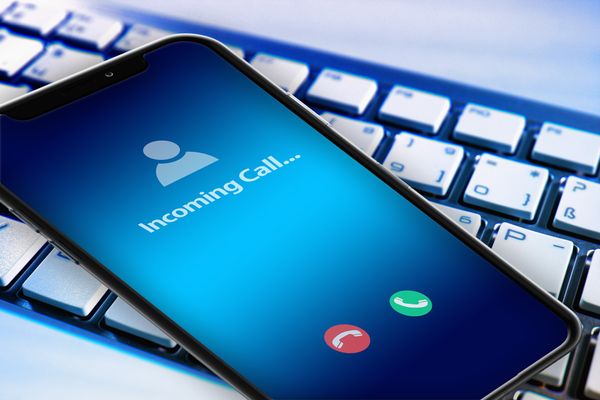Scammer phone number lookup. How to check if a phone number is a scam

Receiving calls from unknown numbers is a common annoyance these days. While some may be telemarketers, others are scammers trying to steal your personal information and money or gain control of your devices through deceptive tactics.
Did you know?
- On average, a person gets around 7 spam calls per month.
- Americans receive a staggering 2.2 billion unwanted calls every month.
- Over the last year, Americans wasted an estimated 219 million hours (9.1 million days or 301,000 months) answering spam calls.
Source: truecaller.com
Are reverse phone number lookup services of any good against scammers?
One way to check if a number is potentially a scam is to use a reverse phone number lookup service. These websites and apps allow you to enter a number and see public information associated with it, such as the registered name, location, and carrier. While some services are free, others may require a paid subscription for more detailed reports.
Alternatively, you can search the number on Google, forums, or websites like Reddit to see if others have flagged it as a suspected spam or scam number.
However, it's important to note that scammers often use technology to make their numbers appear as if they're calling from local area codes or legitimate organizations. Reverse lookup tools may not be able to identify these spoofed or unlisted numbers.
How to tell a scammer is calling you
Watch out for these red flags when you receive a call:
Before Answering:
- International area code that looks local
- Number doesn't match the caller ID name (e.g., says a big company but has a local number)
- Claims to be from a government agency like the IRS or FBI (they won't call you out of the blue)
- Caller ID shows "Scam Likely" or "Spam Risk" (your carrier has flagged it as potential spam)
After Answering:
- The caller claims to be from a government agency, but the caller ID shows something different.
- They say there's an issue with your computer and ask you to download software or give them access.
Related: How To Spot and Avoid Tech Support Scams
- They want you to "verify" personal information like your Social Security Number, PINs, passwords, and bank account numbers.
What to do if you accidentally answer a scammer
If you accidentally answer a spam call, you don't need to panic. In most cases, simply answering a spam number won't put you at risk.
What you are sharing with them may or not put you at risk. The more personal data a scammer obtains, the higher your risk of identity fraud, theft, or having new credit lines opened illegally in your name.
Here are some things to consider:
1. Never give out personal or financial information to callers you can't trust. Hang up if you suspect a scam.
2. Verify their identity before providing any information. Ask for their name and extension, hang up, and call the company/agency back using their official number.
3. Silence unknown callers on your smartphone so they go straight to voicemail (check your settings for this option).
4. Use your carrier's spam blocker app to identify known scam numbers.
5. Don't call back one-ring calls—they're a common scam tactic to get you to call them.
6. Don’t give them device access or agree to anything with unsolicited callers.
Want to uncover online scammers instantly? Use Scamio, our unbeatable AI-powered tool for uncovering scams. Scamio is free and available on any device or operating system via your web browser, Facebook Messenger, and WhatsApp. Provide a description of the scam, upload an image if necessary, and send a link or text. Scamio will analyze the information and tell you whether it's a scam.
FAQ
What are "Scam Likely" calls?
Answer: "Scam Likely" is a label that may show up on your caller ID when receiving an incoming call. This indicates that your mobile carrier has identified the number as likely being used by scammers or spammers based on their database of known spam sources.
When an incoming call matches criteria associated with fraudulent activity, it will trigger the "Scam Likely" warning on the caller ID display. Calls marked "Scam Likely" should be answered with extreme caution if at all.
How can I block spam calls on my smartphone?
Answer: Most smartphones have settings to silence or block calls from unknown numbers.
On iPhones, go to Settings > Phone > Silence Unknown Callers.
On Android, it's Settings > Phone > Block Numbers. This will send any unlisted callers straight to voicemail.
Additionally, check if your mobile carrier offers a spam blocker app that can identify and block known scam numbers from ringing your phone.
I gave a scammer some of my personal data, such as my Social Security number or credit card details. What should I expect, and what should I do?
Answer: If you provided sensitive personal or financial information to someone who turned out to be a scammer, you need to act quickly to protect yourself from identity theft and fraud.
Here are some steps to take:
1) Change any compromised login credentials like usernames, passwords, and PINs immediately across all your accounts.
2) Contact your bank and major credit card companies to inform them your information was exposed. They can flag your accounts for additional monitoring and potentially issue new cards.
3) Place a fraud alert on your credit reports with the three major credit bureaus (Experian, Equifax, and TransUnion). This warns creditors to take extra verification steps before opening new accounts in your name.
4) Monitor your financial statements and credit reports very closely for any suspicious unauthorized activity and report it immediately. Bitdefender Digital Identity Protection can help you, find out how, here.
tags
Author
Cristina is a freelance writer and a mother of two living in Denmark. Her 15 years experience in communication includes developing content for tv, online, mobile apps, and a chatbot.
View all postsRight now Top posts
How to Protect Your WhatsApp from Hackers and Scammers – 8 Key Settings and Best Practices
April 03, 2025
Outpacing Cyberthreats: Bitdefender Together with Scuderia Ferrari HP in 2025
March 12, 2025
Streamjacking Scams On YouTube Leverage CS2 Pro Player Championships to Defraud Gamers
February 20, 2025
How to Identify and Protect Yourself from Gaming Laptop Scams
February 11, 2025
FOLLOW US ON SOCIAL MEDIA
You might also like
Bookmarks







